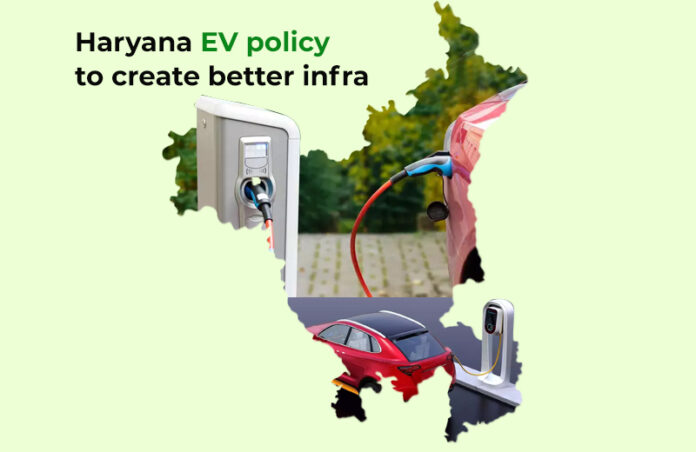
The Haryana government’s draft EV policy, which proposes charging stations at commercial complexes, housing societies, and residential townships with a built-up area of 5,000 sq m, will help faster adoption of EVs and create better infrastructure in cities like Gurgaon and Faridabad, according to real estate developers and brokerage firms.
“EVs are going to be the future, and the state that takes the initiative will benefit from the early adaption. With Gurgaon being a hub of MNCs, a policy will help developers include EV infrastructure from the start of the project,” said Vibhor Jain, Managing Director-North India at Cushman & Wakefield. The objective of the Haryana government’s EV policy is to make Haryana a global hub for electric mobility development and manufacturing of electric vehicles (EVs).
According to experts, the increased popularity of electric vehicles is likely to have a direct link with the real estate sector due to the development of charging infrastructure and the resulting demand for space.
“The policy aims to develop charging infrastructure as a commercially viable business venture in the state by facilitating the availability of land at concessional rates in designated areas,” Jain added. As per the draft policy, to create an entire ecosystem of EV manufacturing in the state, the government plans to allocate 100 to 200 acres of land for developing EV parks with plug-and play internal infrastructure, common facilities, and necessary external infrastructure.
According to Sumit Dhanuka, founder of ElectriVa, a leading EV charging startup, more states should have such progressive policies to accelerate the adoption of green mobility. Experts said that the state’s logistics and industrial space will reap benefits from such conducive measures. Financial incentives offered by the state government include a capital subsidy of fixed capital investment and reimbursement of 100% of stamp duty and transfer duty paid by the industry on the purchase or lease of land for industrial use.









